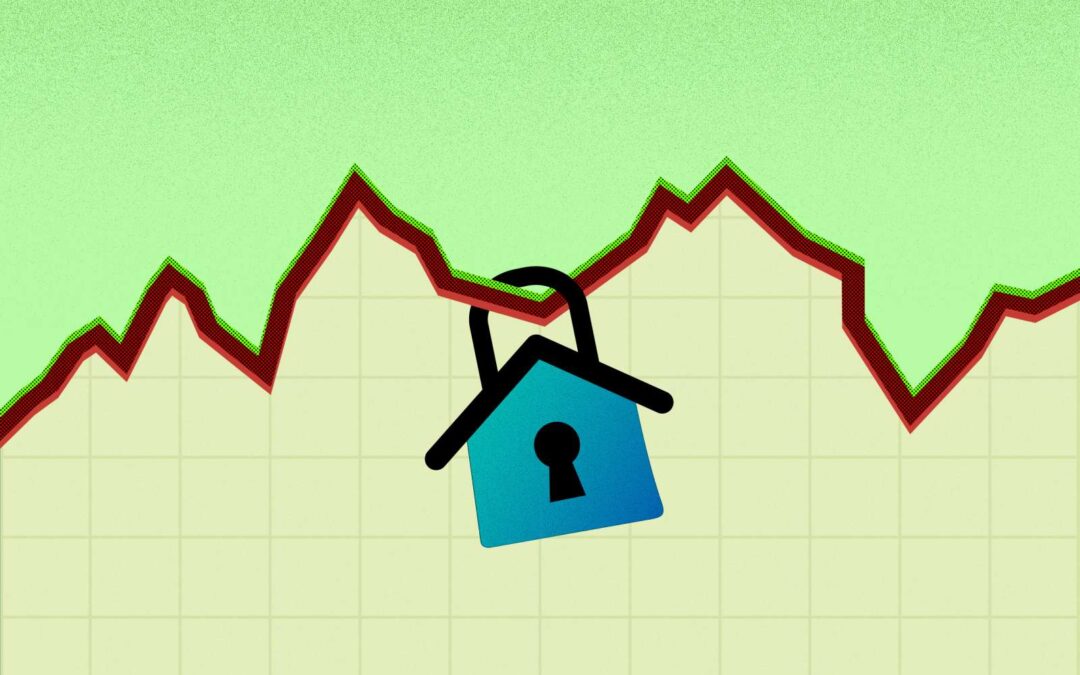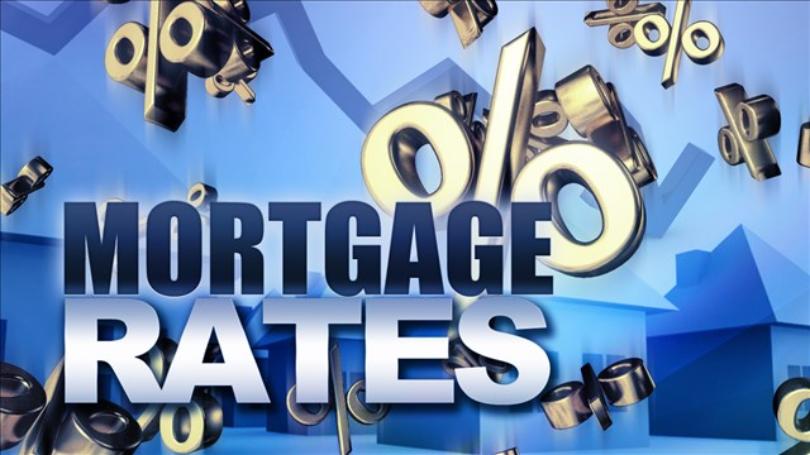
by Moe Bedard | Apr 12, 2022 | Mortgage Rate News |
Mortgage interest rates go up and down daily, sometimes hourly. A rate lock means that the interest rate won’t fluctuate from what you were offered and closing.
As mortgage rates rise, borrowers are opting to lock their rates during the underwriting process rather than gamble with uncertainty.
The number of people locking their rates went up 19.1% month over month for March, according to the latest report from Black Knight.
Black Knight said the increase was driven by a 31% increase in purchase volume, which is now up nearly 70% over the past three months.
The cash-out refinance share of the market remained flat in March, which was 1.6%. The rate/term refinance drops continued, and the market share is now down to 28%.
That’s the lowest since November 2018. Non-conforming loan products are gaining ground, too, as their pace of growth for home prices has reached record highs.
According to Scott Happ. president of Optimal Blue, a division of Black Knight;
“Mortgage interest rates spiked in March, with 30-year offerings climbing 70 basis points over the course of the month.
In fact, our OBMMI (Optimal Blue Mortgage Market Indices) daily interest rate tracker showed the average 30-year conforming rate reach as high as 4.93% late in the month before pulling back slightly to close out March at 4.79%,” he said.
“As home prices continue to climb — even in the face of sharply rising interest rates — we’ve seen the average loan amount rise as well.
The average loan rose by $8,000 to just under $362,000 in March, representing a more than 23% increase over February’s rise,” Happ said.
Moe Bedard is the founder and lead mortgage analyst for LoanSafe.org. Since 2007, LoanSafe has helped over 2 million consumers with solutions to their mortgage problems and has been featured in the New York Times, LA Times, Fox Business, and many other media publications.

by Moe Bedard | Apr 3, 2022 | Mortgage Rate News |
U.S. mortgage rates jumped again this week, according to Freddie Mac’s Primary Mortgage Market Survey of April 1st. The 30-year fixed-rate mortgage rose to 3.29% from 3.21% last week and 4.07% a year ago; the 15-year fixed rate moved up to 2.61% from 2.57% and 3.26%, respectively; and the 5-year ARM rate averaged 2.77%.
The U.S. economic recovery has been fueled by record-low mortgage rates and stimulus checks from the government to help support households during the pandemic. This led to a strong housing market with a balance of supply and demand, said Sam Khater, Chief Economist at Freddie Mac, in a statement accompanying this week’s survey results.
“Mortgage rates are now at the highest level since June 2020,” he added. “While the rise in rates will likely put some pressure on home sales going forward, we expect existing sales to remain close to 20-year highs.”
However, as rates continue to rise and new stimulus checks remain uncertain, economists expect the pace of home sales to slow down in 2021, as buyers are no longer able to afford as much house as they could before.
“The current Fed and Treasury policies have been effective (up until now) in driving down mortgage interest rates and stimulating credit demand by both consumers and businesses alike,” said Jim Baird, chief investment officer at Plante Moran Financial Advisors.
“That said, policy makers are clearly concerned about rising inflationary pressures which could potentially derail an already fragile recovery given the enormous amount of federal support currently in place.”
According to Freddie Mac’s report, “With vaccinations ramping up and fears of COVID-19 receding, more consumers are out shopping for homes, which is pushing prices higher while putting pressure on affordability.
In addition, the supply of homes remains tight as many homeowners who would be selling their homes are opting to stay put due to low inventory.”
Moe Bedard is the founder and lead mortgage analyst for LoanSafe.org. Since 2007, LoanSafe has helped over 2 million consumers with solutions to their mortgage problems and has been featured in the New York Times, LA Times, Fox Business, and many other media publications.



